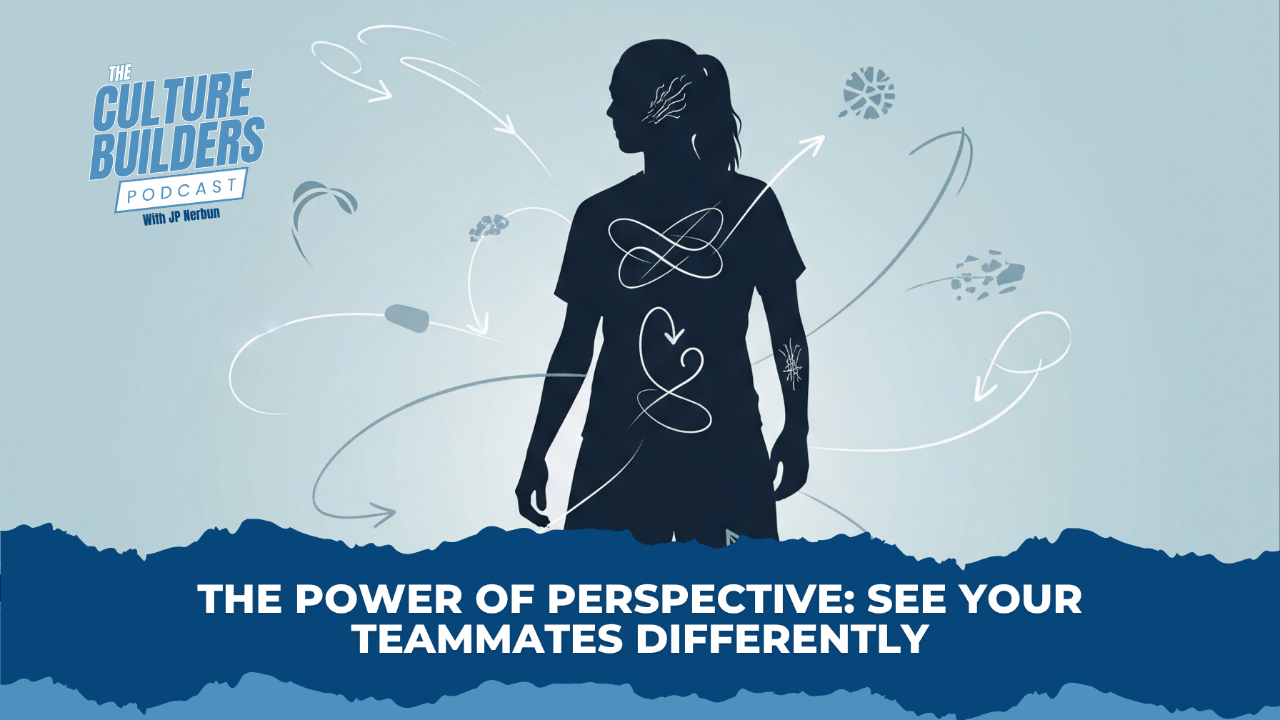The Power of Perspective: See Your Teammates Differently

You know the feeling. That teammate who just isn't pulling their weight. The one whose inconsistent effort or attitude makes your blood boil. It's easy to get stuck in that frustration, to write them off with thoughts like, "They just don't care," or "They're just lazy."
I recently worked with a college soccer captain, let's call her Alex. She was incredibly dedicated, but one player, Jamie, was driving her crazy with inconsistent behaviors—poor effort, missing workouts, and a general lack of engagement. Jamie, a year older, seemed to meet Alex's attempts to encourage and remind her with "attitude." Alex felt Jamie didn’t respect her and was checking out during her senior season.
I challenged Alex to do something powerful: take the heroic perspective of her teammate. What if Jamie wasn't trying to be difficult? Assuming Jamie is the hero of her own story, believing whatever she's doing is justified and good, what might be a reason for her behavior? I urged Alex to step into Jamie's choices from her point of view.
First take: Maybe Jamie just wanted to enjoy her summer and was burnt out. Perhaps the idea of not touching a soccer ball was an attempt to rekindle her fire and passion in the off-season.
Second take: Maybe Jamie, as a senior, felt she had "done her time" and was stuck in a routine where she no longer saw results. Perhaps she was simply lacking passion in the moment, feeling the drudgery of another year.
As Alex dove into these possibilities, something shifted. Her view of Jamie began to soften. Jamie wasn't just "resistant" or "having an attitude" anymore. She was potentially:
- Burnt out: Needing a genuine break from the sport.
- Struggling with motivation: Lacking the inherent drive that Alex always felt.
- Seeking joy: Trying to find enjoyment on her own terms, not just through rigorous discipline.
- Feeling disconnected: Perhaps she felt disconnected from the team’s future that season.
- Resistant to external pressure: Reacting to feeling "monitored" rather than supported.
This perspective-taking wasn't about excusing behavior; it was about seeing the person behind the behavior. Behavior is just a window into what’s truly going on.
When Alex took on Jamie's "heroic perspective," new possibilities for their relationship opened up. She saw avenues she hadn't considered before:
- Empathy: Instead of judgment, she felt a flicker of understanding for Jamie's potential struggles with motivation or burnout.
- Curiosity: Her focus shifted from "How do I make her do the work?” to "What's truly happening for her?"
- Support: She realized a direct, supportive approach might be more effective than constant reminders. Her plan became:
- Lead with Connection: Invite Jamie to train together, making an investment in their relationship.
- Ask Genuine Questions: Over coffee or a run, explore how Jamie is truly feeling about the season, her motivation, and her experiences.
- Offer Empathy: Respond with understanding, validating Jamie's feelings without necessarily agreeing with her actions.
- Offer Support: Share her intention to just help, not police behavior. Ask, "What can I do to help you make this your best senior year?"
The powerful conversations that followed started with Alex doing the hard, internal work of seeing her teammate not as a problem to be fixed, but as a complex individual navigating her own challenges.
This is the power of the heroic perspective: it transforms frustration into curiosity, judgment into empathy, and stalemate into possibility. When you make the effort to truly see your teammates, you open the door for genuine connection, support, and ultimately, real change—for both of you.
Do you want more ways to engage parents and get them supporting you and the team? Get your copy of my book, The Coach’s Guide to Sports Parents, and check out The Working with Sports Parents Online Course.
Join Our Weekly Newsletter
The most practical insights on leadership and culture...
- 3 Minute Weekly Tools & Tips
- Notes to the Coaching Culture Podcast
- FREE Chapter of The Culture System
We hate SPAM. We will never sell your information, for any reason.


